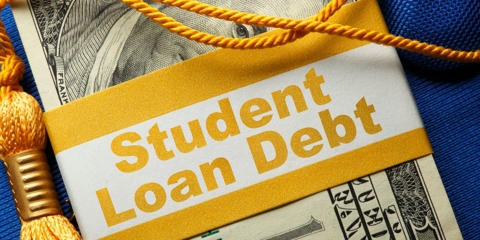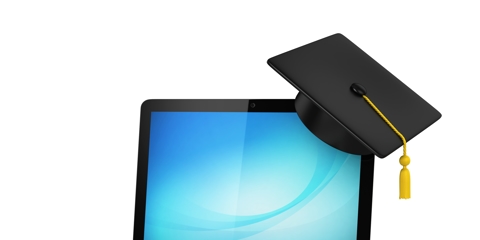Many young adults preparing to go to college will take out student loans to help finance their education. However, not all students who take out loans think about their plan to pay off those loans as soon as possible.
For example, if a student takes out thousands of dollars one year for college, they will most likely take out loans for subsequent years. While a few thousand dollars may not seem like a large sum at one time, the addition of other loans could mean the student owing several thousands of dollars by the end of their college career.
Many turn to bankruptcy when it seems like someone has exhausted all other options to pay off debt. But what does that mean for someone who also has student loans?
Usually, student loans are not included in debt forgiveness when someone files for Chapter 7 or Chapter 13 bankruptcy. However, if a debtor can show that the student loans are causing an undue hardship, there is the possibility of having the loans forgiven.
Undue Hardship
The Department of Education defines undue hardship as the following:
- If by repaying the loan you would not be able to meet the minimal standard of living;
- That when repaying the loan the debtor will continue to endure hardship throughout the loan repayment period; and,
- The debtor did everything within their power to repay the loan before filing for bankruptcy.
The above qualifications are also known as the Brunner test. Another test some courts will use is the Totality of the Circumstances Test. This is when the court will look at all relevant factors, in their opinion, that could prevent you from repaying the loan and determine if there is an undue hardship or not.
Congressional Assistance
During the COVID-19 pandemic, federal student loan payments were put on pause. While there was a brief period where loan payments had to be made, as COVID cases continued to rise, the requirement of student loan payments was stopped again through January 31, 2022.
Some congressional leaders, though, want to take the repayment of student loans a step further. Recently, a bill was introduced in Congress called the Fresh Start Through Bankruptcy Act of 2021. This bill would revise the current bankruptcy standards so that federal student loans could be forgiven like other debts filed with bankruptcy after ten years.
Additionally, student loan borrowers with both federal and private loans that have been due for less than ten years and are filing for bankruptcy because of an undue hardship could have the opportunity to have their loans forgiven. Lawmakers hope that the Fresh Start Through Bankruptcy Act will provide a more straightforward path for student loan borrowers should they choose to go through bankruptcy.
What To Do If You File For Bankruptcy
If you have student loans and file for bankruptcy, it may be hard to know if your student loans will be included in your debt reduction. That’s where the attorneys at Licata Bankruptcy Firm can help. We only work on bankruptcy cases and can figure out your best possible solution.
When working with Licata Bankruptcy Firm, we’ll look at the following factors when evaluating your student loan debt with your case including:
- The ratio of your overall debt to student loan debt;
- If payments have been made on student loans at all, some, or not at all;
- If you have tried to get a deferment or forbearance;
- What may be preventing you from paying off the student loan debt;
- If you have tried all other efforts to maximize income and minimize expenses elsewhere so you could pay off the student loan debt; and,
- If you can’t pay now, will there be options in the future to pay off the debt?
These aren’t questions you should try to navigate through on your own. Schedule a free consultation with Licata Bankruptcy Firm today to get started on a path of being debt-free.


[2].jpg)

.jpg)
